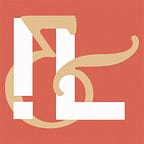Programme Details
The project is an 18-month investigation based on monthly long-form research articles, split into 6 quarterly themes. Our work is rigorous and scholarly, but we don’t want it to be ‘academic’ — our media plan aims to maximise the accessibility of our research and engage as many people as possible, in order to stimulate debate and spread ideas. We’ll produce frequent podcasts and explainer videos, as well as holding events globally to engage writers, activists, intellectuals, and the general public. We also hope to expand to multiple languages.
Research Outline
Can we, as Muslims, come up with our own convincing Islamic arguments for pluralistic open societies? Not only for co-existing as minorities but as fully engaged and invested co-citizens — whether as majorities or minorities?
Throughout this project we’ll examine all of the components that make up this question, which multiple regions of the world wrestle with today — whether Muslim-majority societies post-Arab Spring, or European societies confronting a multicultural paradigm that appears to be failing.
We’ll examine the forces behind the rise of right-wing illiberalism, what it means to “indigenize” liberty and why we need to do it, and why today is one of the most dynamic periods in Muslim thought. We will explore the making of Islamic tradition — the place of history, tradition, and politics — and see how the Islamic mainstream has shifted several times in history, before analysing what “authentic” really means in the context of Islam and who can claim to speak on its behalf.
After this, we’ll turn to the problem of radicalization; a poorly-understood and even more poorly-defined phenomenon with massive significance to the global rise of illiberalism. How do we relate the phenomenon to the global rise of populism and illiberalism, and the erosion of liberal democratic values? We’ll explore the Islamist extremist narrative, and how it relates itself to tradition and history — but then we’ll compare it to other populist rhetoric for some interesting and striking conclusions.
After the “populist grand narrative” we’ll then turn to the reverse, the “liberal grand narrative” and search for the values that lie at the root of the idea of liberalism, so that we can more easily compare Islamic ideals against it.
We’ll look at the concepts of integration, civic nationalism and what it means to be a young Muslim in Europe today caught between these currents, before finally turning to the question of Islam and reform. What does “reform” in the Islamic context look like — given that we do not have an institution similar to, say, the Catholic church, to be “reformed”? What are its principles and priorities? And what is the place of “the West” in these discussions?
